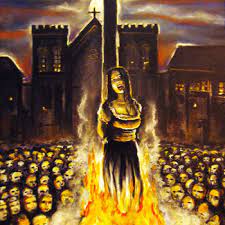I spotted this recommended “Pocket” article this morning, quote; "The observation I’m trying to make is that personhood isn’t the sole property of the mind, or of the brain, or of any one function of these entities. Personhood is a property of the whole body, and the whole body is implicated in how both personhood and an individual person can persist in the face of perpetual forgetting.
It was reading a blog post by the philosopher Mark Rowlands, discussing his idea of ‘Rilkean memory’, that finally gave me language for this hitherto unspoken intuition. Rowlands chose the name because of something that the poet Rainer Maria Rilke wrote in 1910 about how poetry emerges from memories:
… memories themselves are not important. Only when they have changed into our very blood, into glance and gesture, and are nameless, no longer to be distinguished from ourselves – only then can it happen that in some very rare hour the first word of a poem arises in their midst and goes forth from them." Go to: https://psyche.co/ideas/memory-involves-the-whole-body-its-how-the-self-defies-amnesia?utm_source=pocket-newtab-global-en-GB
Typically, when it comes to the ubiquitous nature of the neo-liberal perspective within the media, the article, although otherwise cogent and relevant, succeeds in the Cartesian endeavour of putting “Descartes before the horse” (Muz Murray), for what of those experiences we would like to forget but cannot which are locked up within our nervous, muscular and skeletal systems (et.al)? In Vibrational Medicine we call these blockages “miasms”, quote; “The common definition of miasm as; “a supposed predisposition to a particular disease” (go to: miasm - Google Search ), exemplifies the type of “half-way house” thinking so common to the modern practice of Homoeopathic Medicine; a miasm is a repeated behaviour (always negative), that has its genesis in an original hurt (so far unresolved), whose consequences only worsen with repetition (and develop momentum that accelerates the Thanotic process -“an ever decreasing circle”-).” Go to: https://www.arafel.co.uk/2015/03/putting-on-ritz.html
“Potentised” crystal and flower “essences” address themselves to the emotional causes of illness (esp. “flower remedies”), it is the purpose of the essence to root out the original emotional imbalance that created the propensity for disorder, such is very much a function of memory (Nb. esp. re: recent research concerning the function of the appendix). Progressive psychotherapy (very much recommended to be undertaken by the sufferer when using essences to treat certain emotional traumas), also recognises how the whole body can suffer from the constrictions (for such are almost always “contractions” of the system), imposed by the reaction to traumatic experiences. Muz Murray especially teaches how the application of harmonics such as mantra aid the whole body system to release such experiences allowing for “expansion into the universe” (reminds one -ha!-, of the way Emergence Theory identifies the relationship between the “contraction”* of black-holes as compared to the other “expansive” functions of the universe such as supernovae, quote; “black-holes “partake” of singularity and “pertain” to totality” G.), go to: https://www.facebook.com/MantraMuz & https://www.facebook.com/search/top?q=muz%20murray%27s%20inner%20garden.
*They lead, eventually, to the “ultimate expansion” but that “reversal” requires the supreme effort of the whole system #totality!
